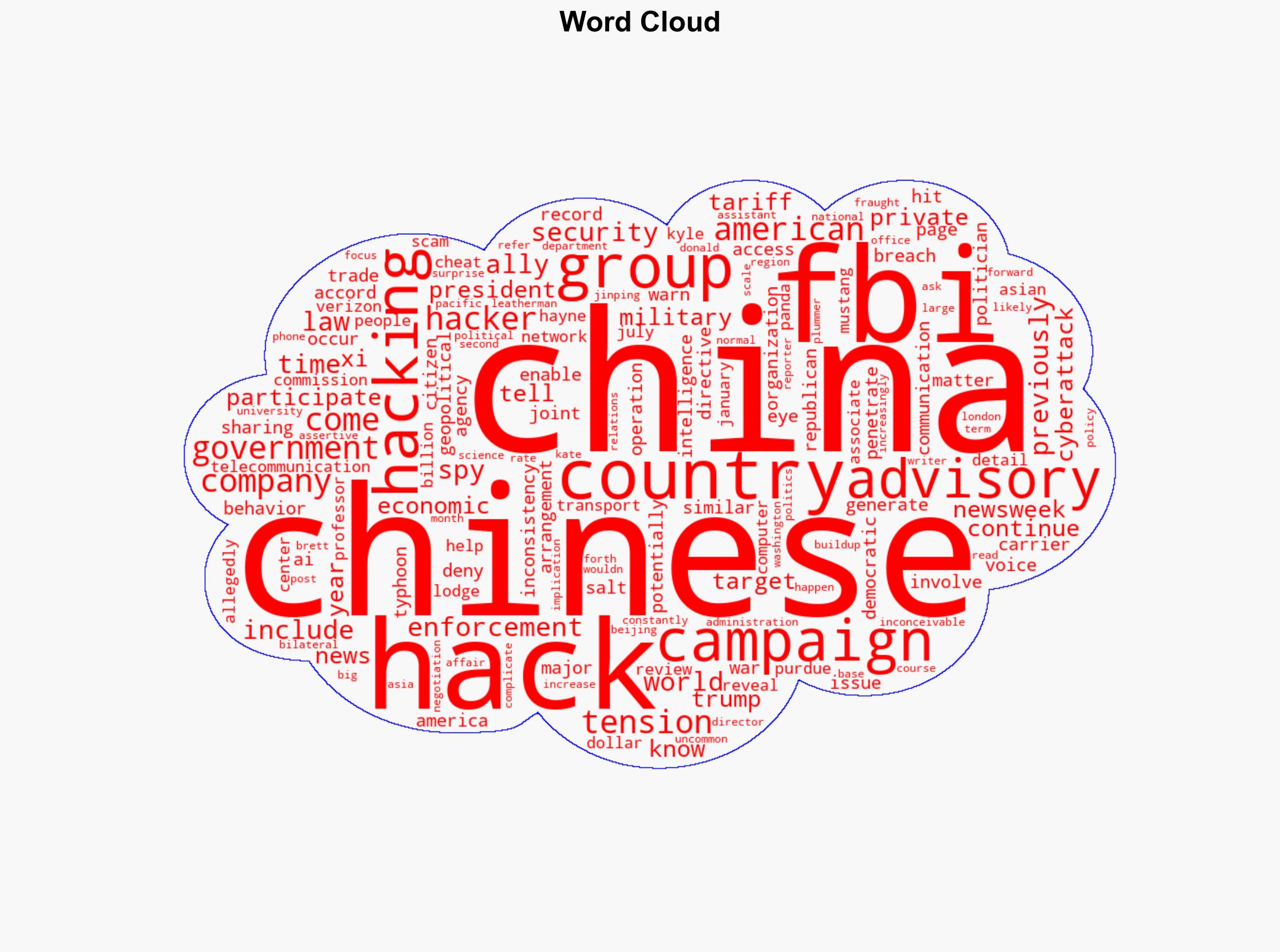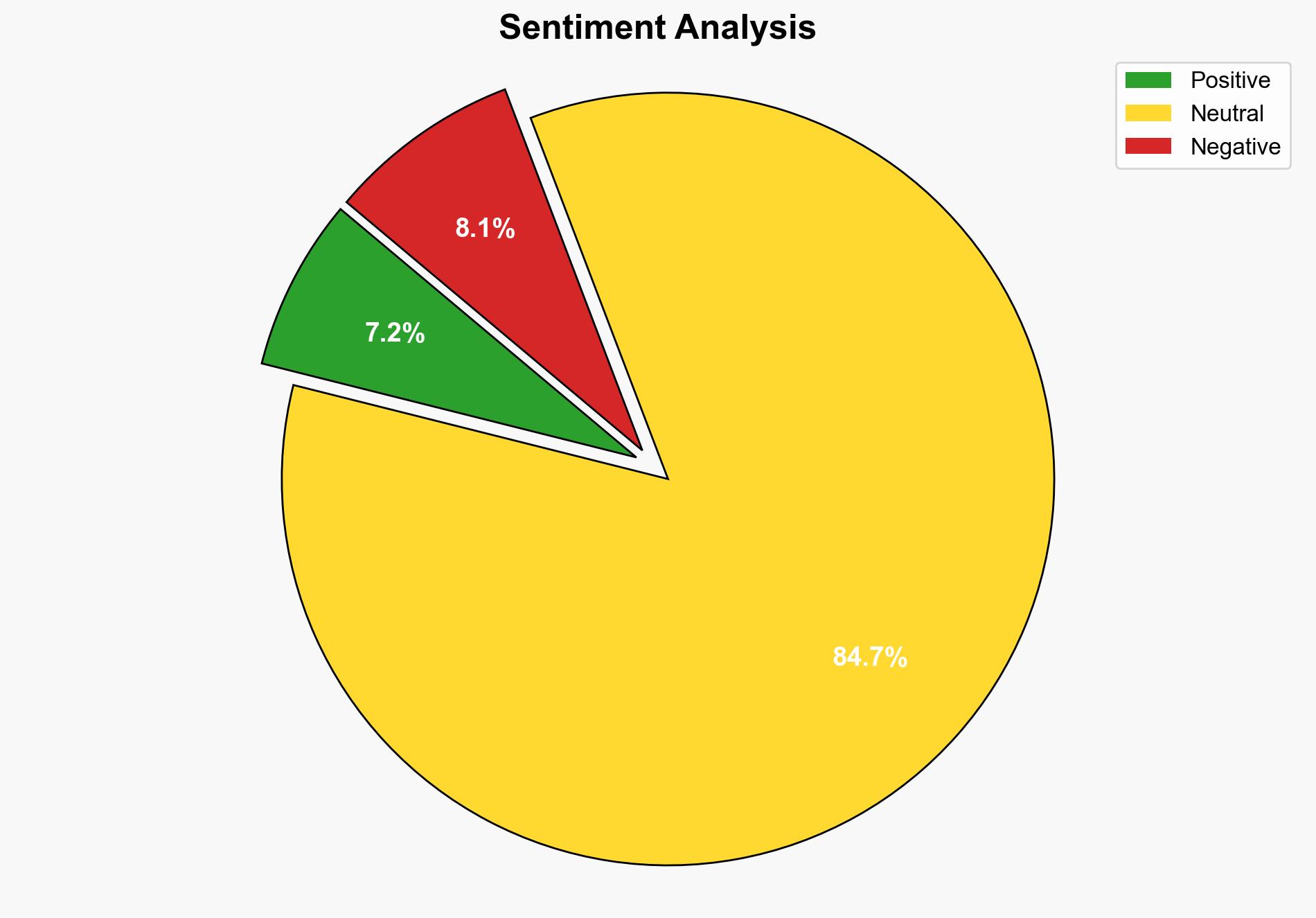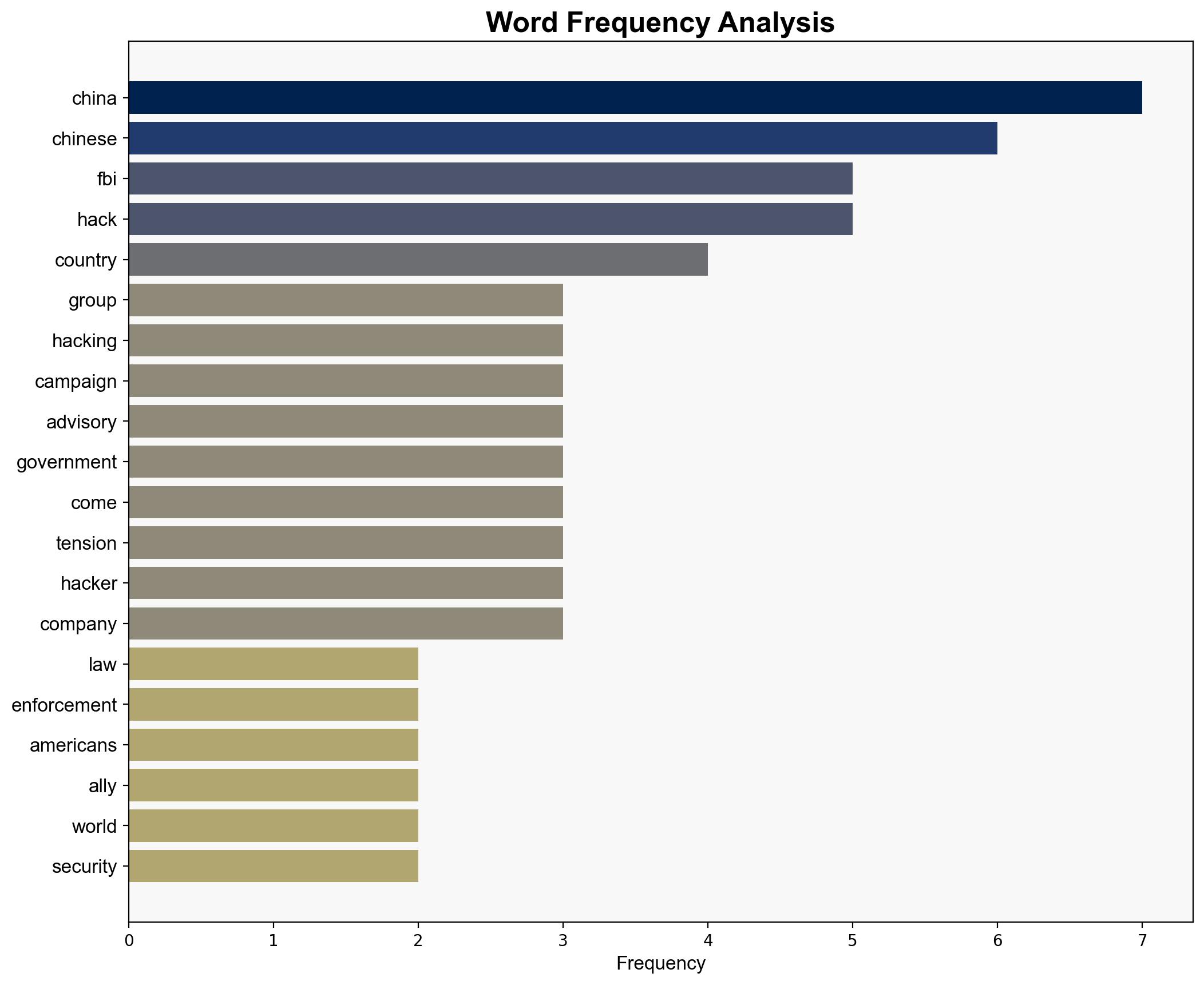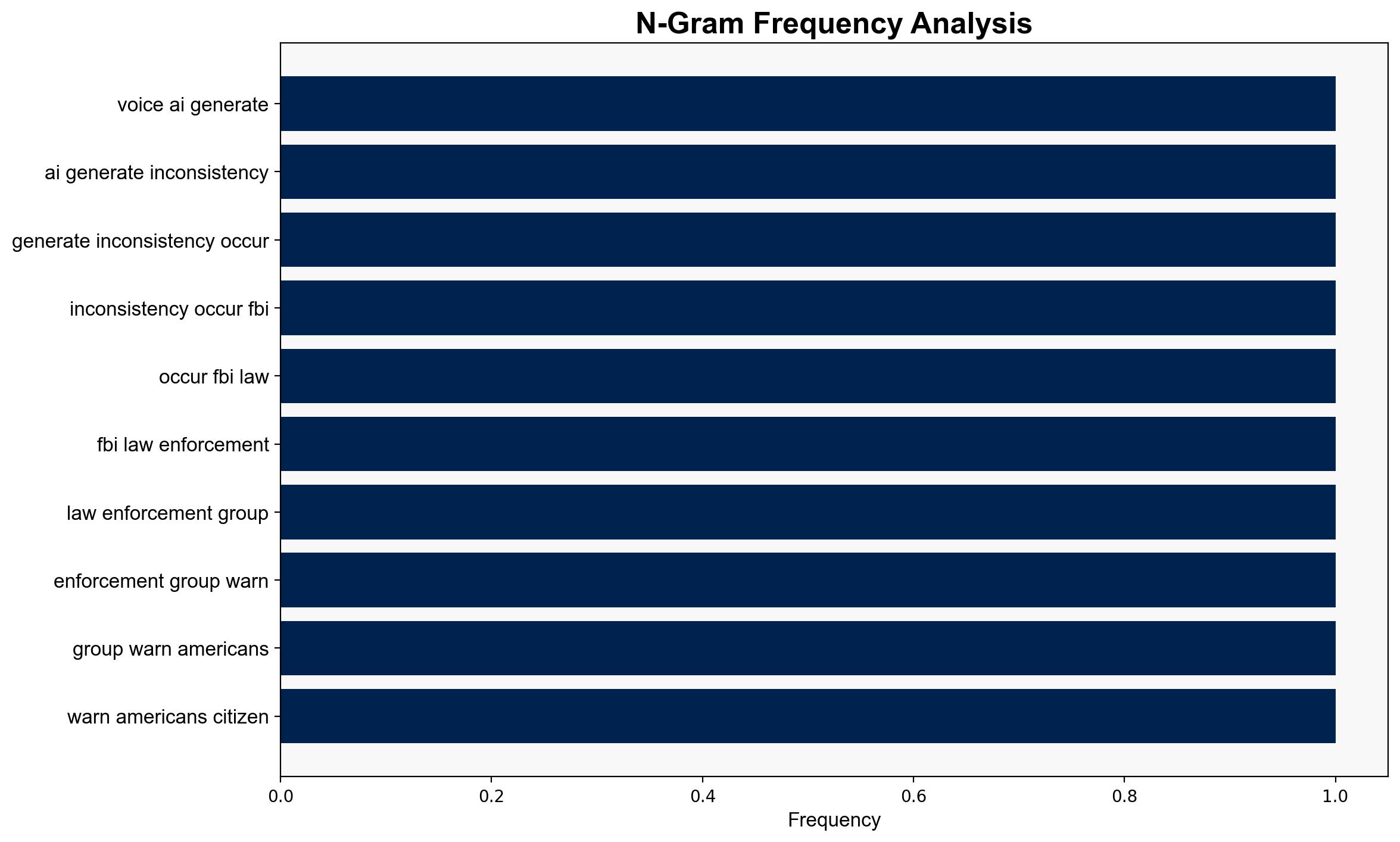FBI Warns Americans of Chinese Hacking Campaign What To Know – Newsweek
Published on: 2025-08-28
Intelligence Report: FBI Warns Americans of Chinese Hacking Campaign What To Know – Newsweek
1. BLUF (Bottom Line Up Front)
The most supported hypothesis is that the Chinese government is orchestrating a coordinated cyber espionage campaign targeting U.S. entities, leveraging state-sponsored hacking groups like Mustang Panda. This assessment is based on the pattern of attacks, geopolitical context, and historical precedence. Confidence level: Moderate. Recommended action includes enhancing cybersecurity measures across critical sectors and strengthening international cyber defense collaborations.
2. Competing Hypotheses
1. **Hypothesis 1**: The Chinese government is directly involved in a state-sponsored hacking campaign targeting U.S. organizations to gain strategic intelligence and technological advantage.
2. **Hypothesis 2**: Independent Chinese hacking groups, motivated by economic gain or nationalistic fervor, are conducting cyberattacks without direct state sponsorship, but with tacit government approval or oversight.
Using ACH 2.0, Hypothesis 1 is better supported by the alignment of the attacks with geopolitical tensions and the historical pattern of state-sponsored cyber activities. Hypothesis 2 lacks direct evidence of government detachment and is less consistent with the scale and sophistication of the attacks.
3. Key Assumptions and Red Flags
– **Assumptions**: The Chinese government has the capability and intent to conduct such operations. The geopolitical context provides motivation for state-sponsored espionage.
– **Red Flags**: Lack of direct evidence linking the Chinese government to specific hacking incidents. Potential bias in attributing all cyber activities to state actors without considering rogue elements.
– **Inconsistencies**: Discrepancies in the level of detail provided about the hacking groups’ operations and targets.
4. Implications and Strategic Risks
– **Economic Risks**: Potential theft of intellectual property could undermine U.S. technological competitiveness.
– **Cybersecurity Risks**: Increased vulnerability of critical infrastructure and sensitive data.
– **Geopolitical Risks**: Escalation of tensions between the U.S. and China, potentially affecting trade negotiations and diplomatic relations.
– **Psychological Risks**: Erosion of public trust in cybersecurity measures and government protection.
5. Recommendations and Outlook
- Enhance cybersecurity protocols across government and private sectors, focusing on critical infrastructure protection.
- Strengthen international alliances to improve information sharing and collective cyber defense strategies.
- Scenario Projections:
- **Best Case**: Successful diplomatic engagement reduces cyber tensions, leading to a bilateral cyber agreement.
- **Worst Case**: Escalation of cyberattacks results in significant economic and security disruptions.
- **Most Likely**: Continued cyber skirmishes with periodic escalations, necessitating ongoing vigilance and adaptation.
6. Key Individuals and Entities
– **Xi Jinping**: Chinese President, potentially implicated in strategic oversight of cyber operations.
– **Brett Leatherman**: FBI Assistant Director, involved in articulating the threat landscape.
– **Kyle Hayne**: Academic providing context on the frequency and nature of cyberattacks.
7. Thematic Tags
national security threats, cybersecurity, counter-terrorism, regional focus





